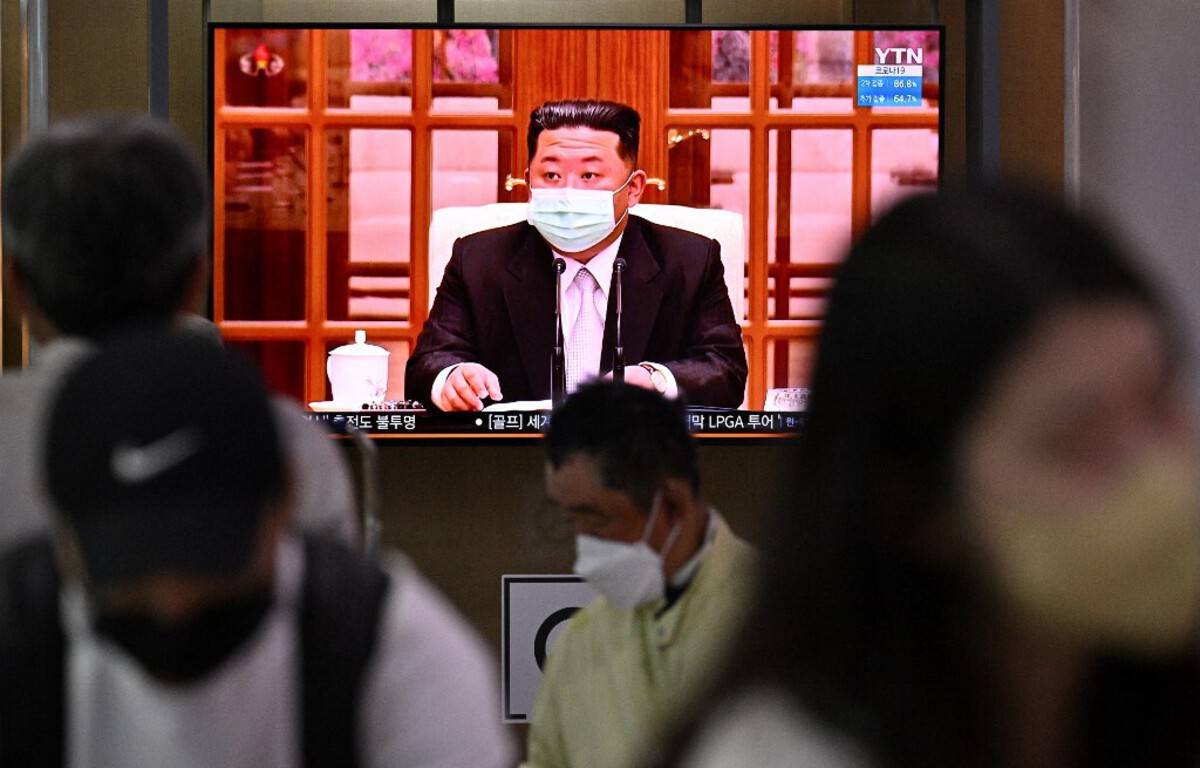How long can an isolated and barricaded territory hold out in the face of a global pandemic? To this question worthy of a disaster movie or Last train to Busan, North Korea has just given its answer: almost two and a half years. Pyongyang has, in fact, reported its first case of Covid-19 infection since the start of the epidemic this Thursday, via its official agency KCNA. 20 minutes make the point.
How has the epidemic been avoided so far by North Korea?
Pyongyang managed to avoid the first waves of Covid-19 while being close to the center of the epidemic. A feat to put on the account of a great reactivity. “Officially, North Korea closed its borders on January 1, 2020, it was the first country to do so,” recalls Antoine Bondaz, researcher at the foundation for strategic research. It immediately expelled all foreign nationals – including diplomats and international aid workers – and banned all arrivals from abroad.
In addition to the border with South Korea, already sealed off by the demilitarized zone, he had to seal the ports as well as the long northern border with China. A challenge, despite the restrictions that already weighed on North Korean trade. « There are two economic streams that come from the North, one official and the other informal, with small traders who can cross the border », explains to 20 minutes the historian Juliette Morillot, author of North Korea in 100 questions and South Korea in 100 questions (Ed. Tallandier).
Despite this, the authorities managed to keep the borders tight « because there is immediate obedience » and « very quickly implemented the wearing of masks, barrier measures », adds the historian. At the start of the year, trade resumed with China. But even there, everything happened « in a defined area, with disinfection of the goods », specifies Antoine Bondaz.
However, the coronavirus may have been imported by someone who crossed the border illegally from China, experts said.
Was the North Korean health system ready?
One of the reasons for the rapid closure of the borders was that « the authorities knew that the health system could not withstand a massive wave », further indicates Antoine Bondaz. The development of hospitals and the updating of this health system are moreover “not the priority of the regime”, where the least won is devoted to defense. Also North Korea is “no more prepared today than two years ago” to face the epidemic, fears our expert.
In fact, the country did not vaccinate its population, refusing “the aid of Covax, which offered two million doses of AstraZeneca, and three million doses of Sinovac” offered by China, notes Juliette Morillot. “There are 25 million inhabitants, if we are not talking about tens of millions of doses, it is insufficient”, calculates Antoine Bondaz, when the historian adds “the fear that accepting foreign aid will be seen as a weakness » by the population. Indeed, Pyongyang has already rejected in the past offers of assistance and vaccination made in particular by the World Health Organization (WHO) and its main ally, China.
Nevertheless, the two experts interviewed by 20 minutes admit that it is possible that part of the elite will be vaccinated, with doses of the Chinese Sinovac vaccine or even doses of Western vaccines. Another big hole in the North Korean health network, tests. In two years, the regime would have carried out « only about 65,000 tests », according to Juliette Morillot.
Can we believe that this is the first case in North Korea?
The Covid-19 case announced by the regime “matches” the Omicron variant. Which is not a detail for the historian, who recalls that this strain is “particularly contagious”. The confinement decided by Kim Jong-un must therefore avoid an epidemic tidal wave and « protect the elites ». The appearance of the virus in the capital precisely arouses the suspicions of Antoine Bondaz. “We could have understood if it was at the border, via trafficking…” For the two experts, there is therefore a chain of contaminations to be traced.
However, this is not quite the first time that there have been fears about the presence of Covid-19 in North Korea. « In July 2020, the city of Kaesong was completely confined after a defector passed from the South to the North », recalls Juliette Morillot. Similarly, alerts “adjoined to confinements due to sandstorms” have sown doubt. The historian drives the point home with “massive imports of protective suits” in April, just before “the complete cessation of the movement of goods and trains with China after cases in Dandong, a border town”.
